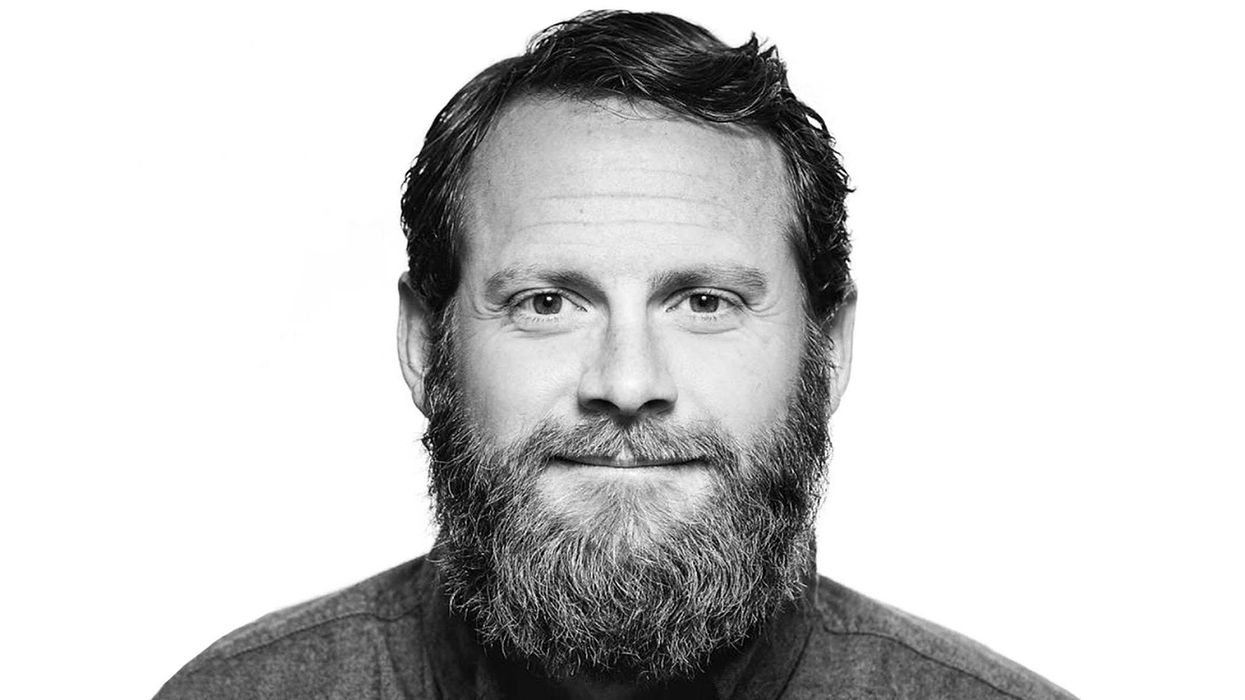HydroFlask’s Travis Rosbach is a ‘True Water Man’

Whether you're at work, shopping for groceries, at the gym, or browsing online — there's a good chance you’ve run into a HydroFlask.
On this episode of the PCH Driven podcast, Hydroflask founder Travis Rosbach talks about how his relationship to the outdoors led him to create a stainless steel, reusable water bottle company.
Rosbach grew up in Salem, Oregon where he spent much of his time as a child biking, swimming and dreaming about diving into tropical waters and exploring them like Jacques Cousteau. A late neighbor of Rosbach’s, a successful attorney, left all his books to Rosbach when he was 12 years old.
“It was like the one thing out of his whole house that I was just really drawn to,” Risbach says, “And it had…all of these business techniques. And I was just enamored. I was just completely smitten with the idea of doing business.”
Sick of the sight of plastic water bottles washing up on the beach, Rosbach went to a sporting goods store to get a reusable bottle of water when he was in Hawaii. He found the store didn’t have any.
“The whole wall was empty. It was just completely empty. I mean, I think there's like three bottles on it. And I was like, ‘What happened’?”
A sales associate informed him that the owner had pulled them all from the shelves over concerns about large quantities of BPA found in the reusable plastic bottles.
The most shocking part for Rosbach? There would be no other company or manufacturer replacing them.
“And it just came out of my mouth: ‘I will. I will do that’. And he laughed at me,” Rosbach said. From that moment, Rosbach set out to create the company that could fill those shelves. “So it was like, ‘Okay, I guess I am doing water bottles’.”
Drawing inspiration from an “old school” glass and metal thermos that his grandfather used to take on fishing and outdoor trips in Oregon, Rosbach sought out to build an insulated, reusable bottle that could maintain the temperature of both hot and cold drinks. But when he brought the idea to manufacturers, he was told there was no market for them. That didn’t matter to Rosbach.
“I never had any thoughts of money. Never. I had no concept of exit,” he said. “I had no concept of generational wealth or [creating a] generational company. I just knew that this was doing the best water bottles, period. That was it.”
Learning how to build a “double-vacuum” insulated water bottle is not something Rosbach or his manufacturers knew much about. When he started HydroFlask, he says, they began “learning together.”
After a lot of adaptation, the bottles took off. HydroFlask sold out of its first 3,000 bottles. Eventually, Hydroflask was ordering 40,000 bottles at a time and growing 600% per quarter. The profits helped him hire a team.
“I was by myself, in the early days, for the first couple of years, I really didn't have anybody who was with me to help,” says Rosbach.
As the brand gained traction and started attracting investment, Rosbach found he had to expand beyond just trying to create the perfect reusable bottle, and concentrate on increasing profits.
“It’s one thing [when] it’s just my money. But when it's other people's money, I had checks and balances that I had to start stepping up to,” he says.
One day, Rosbach says, he was at the Louvre in Paris and he noticed a woman holding one of his water bottles. He remembered a story about the founder of Sam Adams beer company saying that once he saw a Sam Adams bottle cap outside of Boston, that would be a signal he’d be ready to move on.
“Once you have an international brand,” Rosbach says, “what else do you really want to do?”
Soon after, he sold the business he’d spent years of his life building.
“I never read a book about what's the day like after the exit, you know. There was no game plan. There was no strategy,” he says. He paid off his student loans and paid off his grandparents who’d helped him get the business started, and embarked on something new.
Now Rosbach works with the Tumalo Group, where he helps entrepreneurs get started.
“If I can do it, anybody can do it, like now that I have the blueprint. I can teach others that same blueprint. And…that's what I love…I love helping people take their business to the next level.”
Subscribe to PCH Driven on Apple, Stitcher, Spotify, iHeart, Google or wherever you get your podcasts.
dot.LA Engagement & Production Intern Jojo Macaluso contributed to this post.
- PCH Driven: 75 and Sunny's Wil Chockley on How to Pitch Your ... ›
- PCH Driven: What Serial Entrepreneur and Angel Investor Spencer ... ›
- PCH Driven: 'SOMM' Director Jason Wise - dot.LA ›
- Eleven Eleven Wines’ Ellie Anest on Building a Winery - dot.LA ›





 e.l.f. Beauty Chairman and CEO Tarang Amin and Rhode Founder Hailey BieberImage Source: e.l.f. Beauty
e.l.f. Beauty Chairman and CEO Tarang Amin and Rhode Founder Hailey BieberImage Source: e.l.f. Beauty